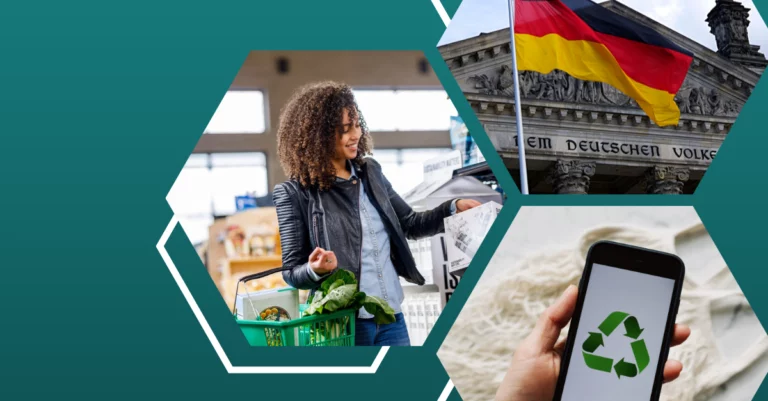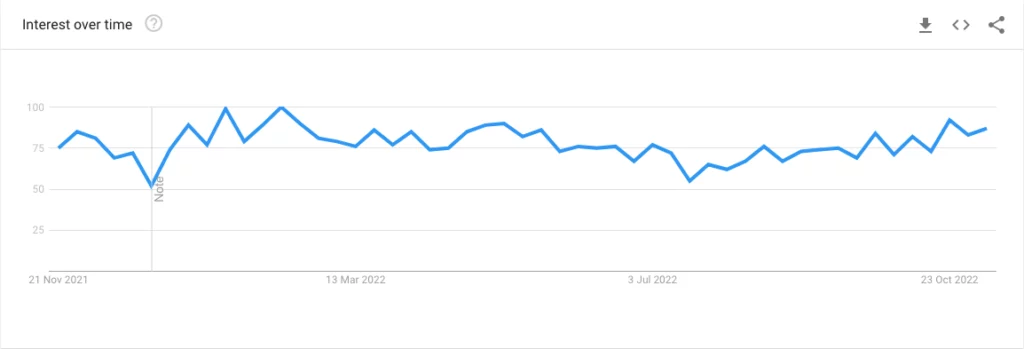Post Summary - Relevant Facts
- Germany expects hydrogen to play a significant role in delivering deep emissions reductions
- Deutsche Bank is introducing a comprehensive package of energy saving measures
- Despite inflation, consumers in Germany are still deciding to buy sustainably
- Germany’s second largest commercial bank, Commerzbank is committed to a coal investment reduction path
Introduction
Environmental issues are getting more and more important for Germans. Today’s consumers aren’t staying idle as the devastating impacts of climate change become more and more evident. Around 400 million tons of plastic are produced worldwide each year. More than a third of this total is packaging – with between 307 and 925 million larger items of plastic waste ending up in the seas each year. This is why zero-waste shopping is becoming increasingly popular in Germany.
On the demand side, Germany expects hydrogen to play a significant role in delivering deep emissions reductions. To this end, the country adopted a national hydrogen strategy in 2020. Using green hydrogen will allow Germany to save several million tons of carbon per year.
A growing number of companies in Germany are already making a commitment to society as part of conducting sustainable business. Inevitably, banks’ key role in the economy has catapulted them into the centre of the sustainability debate.
Sustainability in Germany: Some initiatives
The German National Tourist Board promotes sustainable activities, transport and accommodation for those who want to visit the country. They have also implemented a carbon footprint calculator on their website to enable users to calculate their CO2 footprint of their journey by air or car and offset it through sponsorship of certified carbon offset programmes around the world.
In addition, the competition among banks to show their climate commitment is accelerating. Banks around the world are reorganising their priorities and business objectives to meet the increasing demand for sustainable financial services. Younger generations in particular demand that financial institutions take climate action, they want brands to reduce their carbon footprint through direct and indirect measures.
In 2022, Deutsche Bank introduced a comprehensive package of energy-saving measures in its German operations that will help the bank save an additional 4,900,000 kWh of electricity each year. The plan will reduce short and long-term energy consumption and supports the German government’s energy saving efforts. Deutsche Bank also plans to reduce its gas consumption.
Germany’s second-largest commercial bank, Commerzbank is committed to a coal investment reduction path and has set itself measurable targets for low-carbon energy funding.
Top searches
Sustainability has gained enormously in importance among German consumers in recent years, not the least driven by the pandemic. We can see this in sustainability-related Google searches: there is a strong focus on searches like ‘carbon footprint’, ´renewable and sustainable Energy´, ´food system´, ´renewable resources´, ´carbon neutrality´.
Trends in Consumer Behaviour
Around 88% of German consumers have become more sustainable in their consumption behaviour in recent years. According to the GfK Sustainability Index, most Germans want to maintain their lifestyle while buying the alternative product, which leaves a little less carbon footprint behind.
Due to increasing living costs, price is becoming a priority for many Germans. But despite inflation, consumers in Germany are willing to spend more money on more sustainable products and services.
81%
of consumers are concerned about rising food prices
61%
of consumers are concerned about rising prices for major purchases
Source: GfK Sustainability Index 2022
In terms of figures, 74% of Germans think that environmental pollution is a serious problem, and 69% fear climate change. In addition, an important fact for companies and businesses, almost two-thirds (68%) of Germans demand that companies act in a sustainable way.
Sustainability Apps
We highlight the following apps that are based on promoting a sustainable habits in terms of transportation, reduction of food waste or financial investment in environment-related causes:
Want to know more?
Snowdrop Solutions currently works with leading digital and traditional banks in Europe, the UK and Asia Pacific. Snowdrop is a location and data intelligence company that has been a Google Trusted Partner since 2013 and Visa Europe since 2020. Our transaction enrichment solution, the ‘MRS’ API, brings together our deep understanding of the Google Maps APIs, a proprietary database and a second to none matching algorithm. We offer superior match rates and accuracy to any of our competitors and a unique customer centric approach that, other than transaction enrichment, provides cost savings and churn reduction to our clients, over and over.
If you want to know more about our product, you can access more information on our dedicated MRS page or by contacting us. A member of the team will respond to your request promptly.





